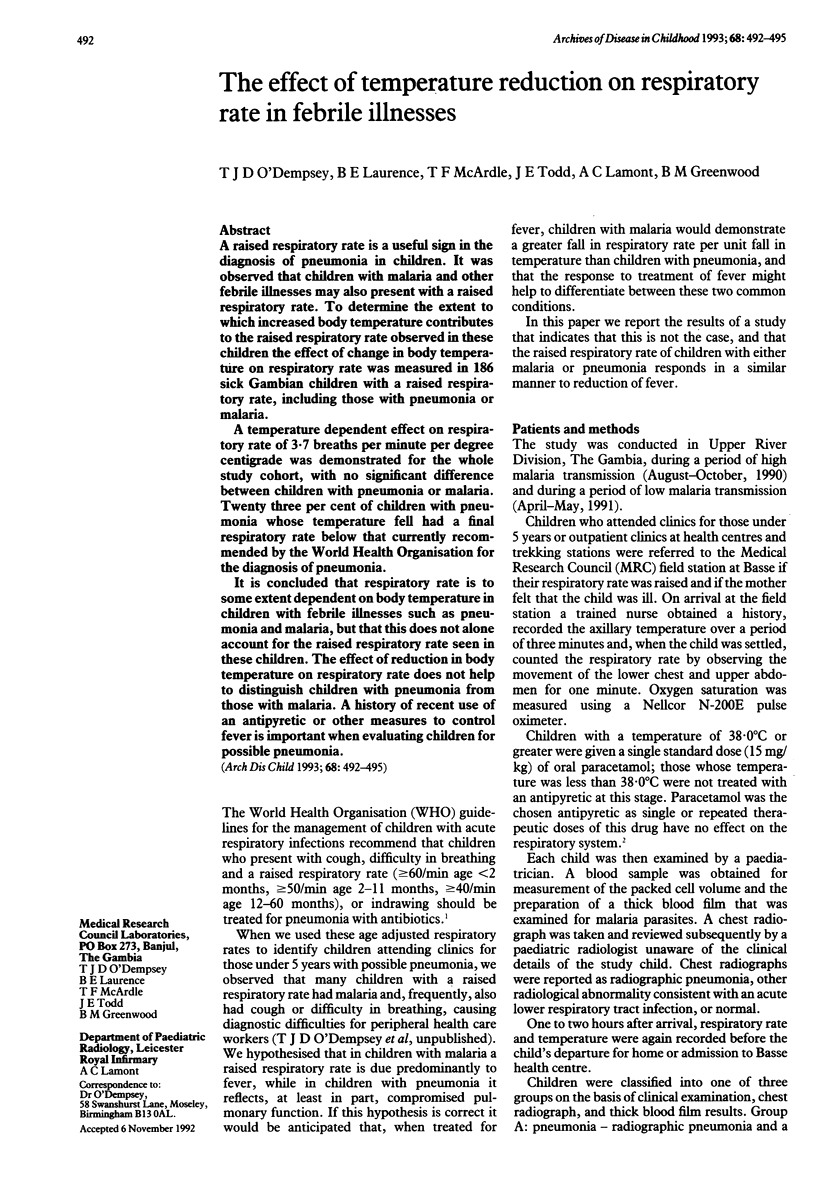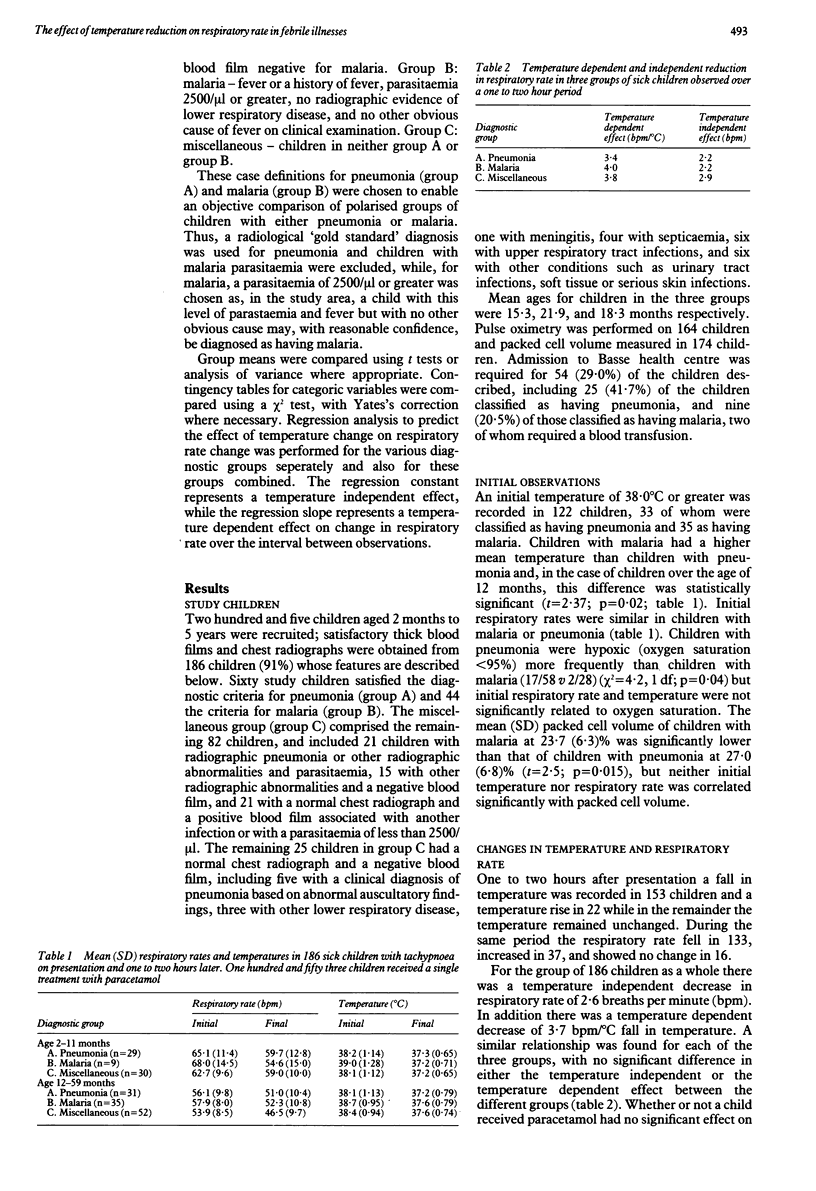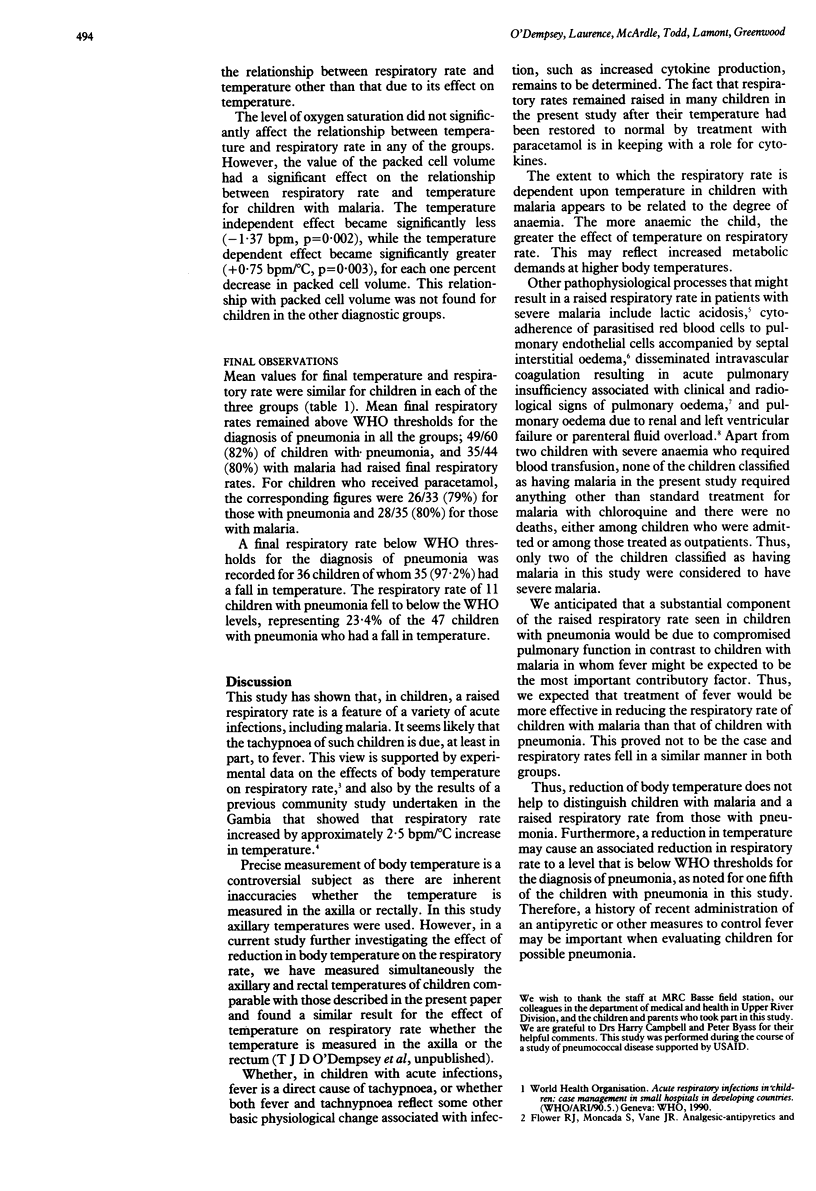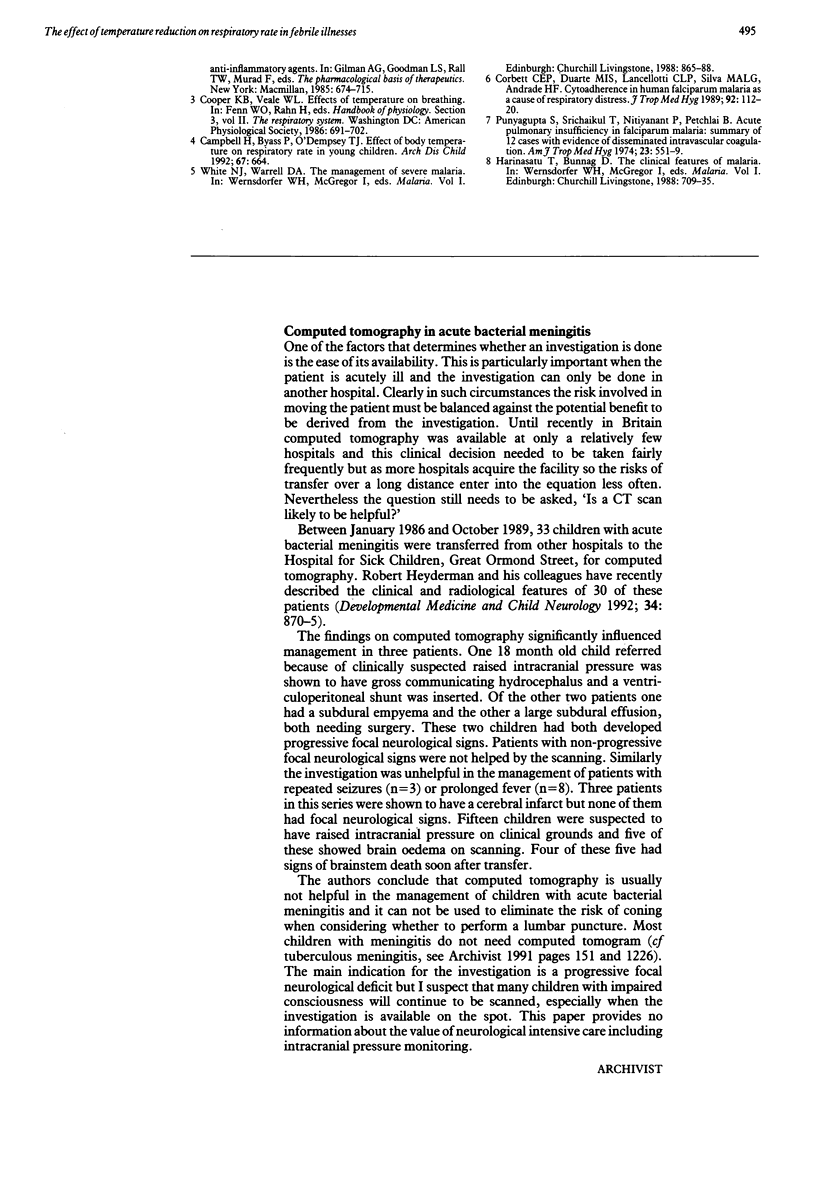Abstract
A raised respiratory rate is a useful sign in the diagnosis of pneumonia in children. It was observed that children with malaria and other febrile illnesses may also present with a raised respiratory rate. To determine the extent to which increased body temperature contributes to the raised respiratory rate observed in these children the effect of change in body temperature on respiratory rate was measured in 186 sick Gambian children with a raised respiratory rate, including those with pneumonia or malaria. A temperature dependent effect on respiratory rate of 3.7 breaths per minute per degree centigrade was demonstrated for the whole study cohort, with no significant difference between children with pneumonia or malaria. Twenty three per cent of children with pneumonia whose temperature fell had a final respiratory rate below that currently recommended by the World Health Organisation for the diagnosis of pneumonia. It is concluded that respiratory rate is to some extent dependent on body temperature in children with febrile illnesses such as pneumonia and malaria, but that this does not alone account for the raised respiratory rate seen in these children. The effect of reduction in body temperature on respiratory rate does not help to distinguish children with pneumonia from those with malaria. A history of recent use of an antipyretic or other measures to control fever is important when evaluating children for possible pneumonia.
Full text
PDF



Selected References
These references are in PubMed. This may not be the complete list of references from this article.
- Corbett C. E., Duarte M. I., Lancellotti C. L., Silva M. A., Andrade Júnior H. F. Cytoadherence in human falciparum malaria as a cause of respiratory distress. J Trop Med Hyg. 1989 Apr;92(2):112–120. [PubMed] [Google Scholar]


